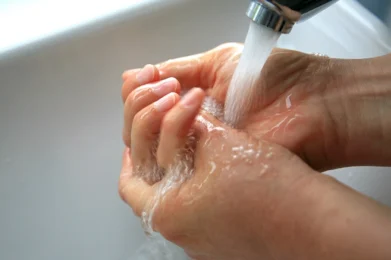Arizona’s extreme summer heat often brings warnings about heat exhaustion and heat stroke.
Did you know it also can increase your risk of having a conventional stroke – along with other cardiovascular issues, such as a heart attack?
That’s because extreme heat makes your heart work harder and stresses the cardiovascular system. Heat related dehydration adds to the problem by making the heart work even harder to cool your body.
According to the Harvard Heart Letter, a 2024 study demonstrated the heat related stroke risk. It included data from more than 82,000 people across China who were hospitalized for an ischemic stroke during the warm seasons from 2019 to 2021. (Ischemic strokes occur when blood supply to part of the brain is blocked or reduced, usually because of a blood clot.) By checking hourly temperature records for up to 24 hours before a person’s stroke symptoms began, researchers found that as temperatures rose, so did the risk of stroke.
For people with heart disease, extreme heat can be even more dangerous – and may contribute to life-threatening events like a heart attack. According to a 2022 study published in Circulation, 1 in 100 heart disease deaths are linked to extremely hot or extremely cold temperatures.
The takeaway from all this? Take the heat seriously because it can be deadly.
When our temperatures rise above 100 – especially over 110 – find a cool place to ride out the hottest times of the days. If you don’t have to go out during the heat of the day, stay inside where the temperature is regulated.
If you do have to go out, aim for early morning at sunset/night when the sun isn’t blazing. In Phoenix, the nighttime temperatures can exceed 90 degrees, so be careful and take breaks.
Other tips:
Stay hydrated. Even if you have a heart condition and have been told to monitor your fluid intake, hydration during extreme heat is critical. If you have concerns, talk to your doctor.
Take your medication. If you’re worried that your medication could impact your ability to deal with the heat, talk to your doctor. Don’t skip taking prescribed medication.
Watch for signs of heat distress. These include light headedness, dizziness, heavy sweating, cold and clammy skin, confusion, nausea and a fast pulse. Seek help immediately.
The bottom line? Don’t mess with Arizona’s extreme heat because it’s an equal opportunity killer – even young, physically fit can succumb to heat stroke. For older adults and those with heart conditions, it’s even more important to take precautions.




